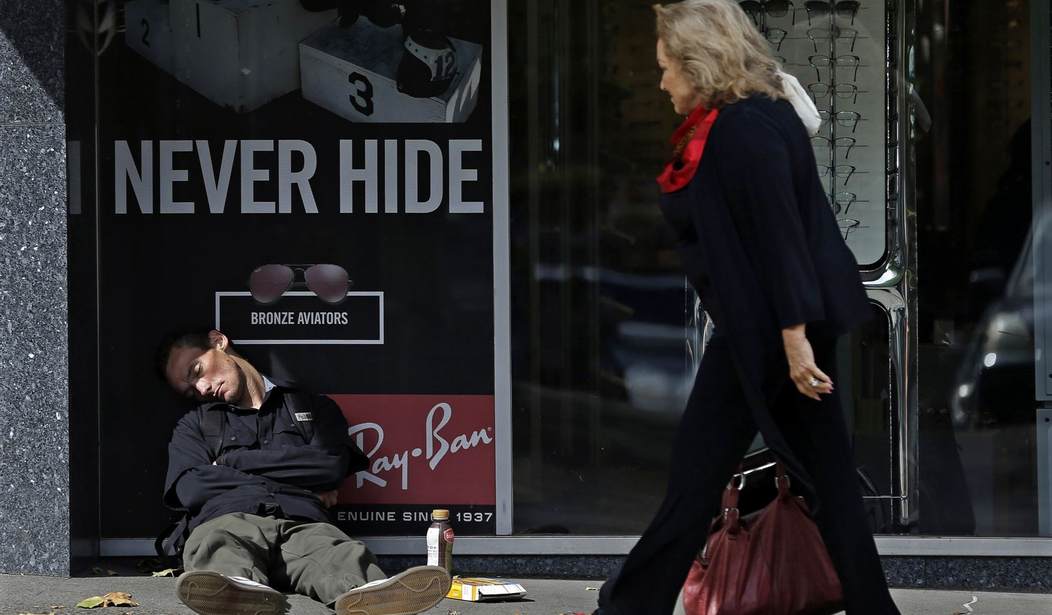We’re all still dealing with a terrible social hangover from the events of 2020 but no place more so than Portland. Portland defunded the police and tolerated months of street violence by Antifa. Meanwhile, the state of Oregon passed Ballot Measure 110 which decriminalized small amounts of hard drugs. The results haven’t been pretty with a rise in violence and drug abuse. There was testimony about the city’s struggles at a City Council meeting today:
Jeff Miller, CEO of Travel Portland, says in 2019 hotel occupancy was 85-90% in the summer. Now four years later, occupancy is at 63%. Miller says he believes the decrease in hospitality is linked to drug dealing and usage.
“Most cities rebook 70% of those conventions in Portland. We’ve rebooked 30%. They said we’re not coming back. Portland is too dangerous,” says Miller…
David Friedericks of Portland Fire & Rescue Station 1 says his station alone responded to a total of 76 overdose calls over Labor Day weekend and calls the high volume of calls is disheartening.
After two hours of testimony like that, the progressives who make up the Portland City Council voted unanimously to ban the open use of drugs on the street.
While there’s already an ordinance to ban drinking alcohol in public, the new ordinance would add controlled substances. Those who violate the ordinance could face a fine up to $500 or spend six months in jail.
Even Mayor Ted Wheeler spoke in favor of the ban saying, “Just by virtue of illustrating how important this issue is, the last time I saw somebody consuming what what I believe to be fentanyl publicly on our streets was less than five minutes ago, three blocks from city hall.” But Wheeler is also aware that the new ban may not be legal thanks to Ballot Measure 110:
…the new version of the ordinance does not go into effect immediately. Instead it includes a “trigger” amendment, meaning the regulations would go into effect immediately after the Oregon Legislature or the courts change or suspend that statute…
Paired with the public drug use ordinance before city council on Wednesday was a resolution directing Portland’s Office of Government Relations to lobby for the necessary change to state statute.
The Atlantic published a story in July making the case that Oregon’s experiment with the legalization of hard drugs has been an abject failure.
Early results of this reform effort, the first of its kind in any state, are now coming into view, and so far, they are not encouraging. State leaders have acknowledged faults with the policy’s implementation and enforcement measures. And Oregon’s drug problems have not improved. Last year, the state experienced one of the sharpest rises in overdose deaths in the nation and had one of the highest percentages of adults with a substance-use disorder. During one two-week period last month, three children under the age of 4 overdosed in Portland after ingesting fentanyl…
Oregon’s Measure 110 was viewed as an opportunity to prove that activists’ most groundbreaking idea—sharply reducing the role of law enforcement in the government’s response to drugs—could work. The measure also earmarked hundreds of millions of dollars in cannabis tax revenue for building a statewide treatment network that advocates promised would do what police and prosecutors couldn’t: help drug users stop or reduce their drug use and become healthy, engaged members of their communities. The day after the measure passed, Kassandra Frederique, executive director of the Drug Policy Alliance, one of the nation’s most prominent drug-policy reform organizations, issued a statement calling the vote a “historic, paradigm-shifting win” and predicting that Oregon would become “a model and starting point for states across the country to decriminalize drug use.”
But three years later, with rising overdoses and delays in treatment funding, even some of the measure’s supporters now believe that the policy needs to be changed. In a nonpartisan statewide poll earlier this year, more than 60 percent of respondents blamed Measure 110 for making drug addiction, homelessness, and crime worse. A majority, including a majority of Democrats, said they supported bringing back criminal penalties for drug possession. This year’s legislative session, which ended in late June, saw at least a dozen Measure 110–related proposals from Democrats and Republicans alike, ranging from technical fixes to full restoration of criminal penalties for drug possession. Two significant changes—tighter restrictions on fentanyl and more state oversight of how Measure 110 funding is distributed—passed with bipartisan support.
So Portland’s decision to recriminalize open drug use is a big admission that this experiment has failed. And really that shouldn’t be a surprise to anyone. Just like defunding the police, the premise of this change was the idea that law enforcement was the problem. If we could just reduce their involvement, things would get better as if by magic. Instead, everywhere removing law enforcement was tried things got worse. And as mentioned above, there are secondary effects beyond the number of overdoses. A city in the grip of a fentanyl epidemic turns out to be very unattractive to tourists.
Hopefully the state will put an end to this experiment soon and Portland will be able to take one more step back toward sanity.








Join the conversation as a VIP Member